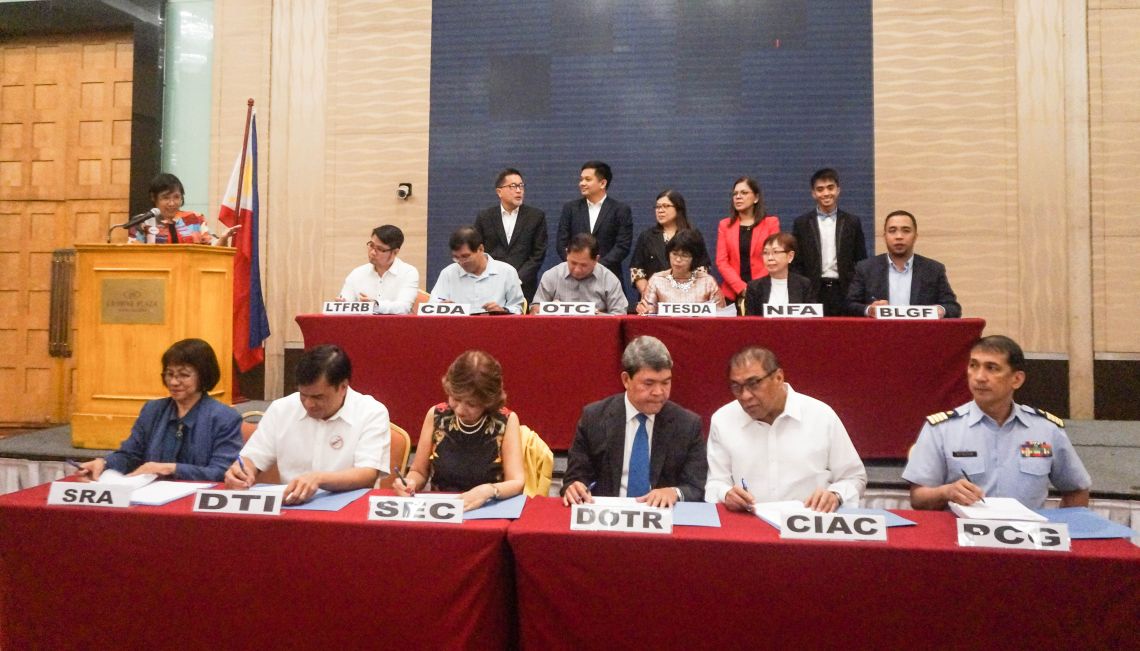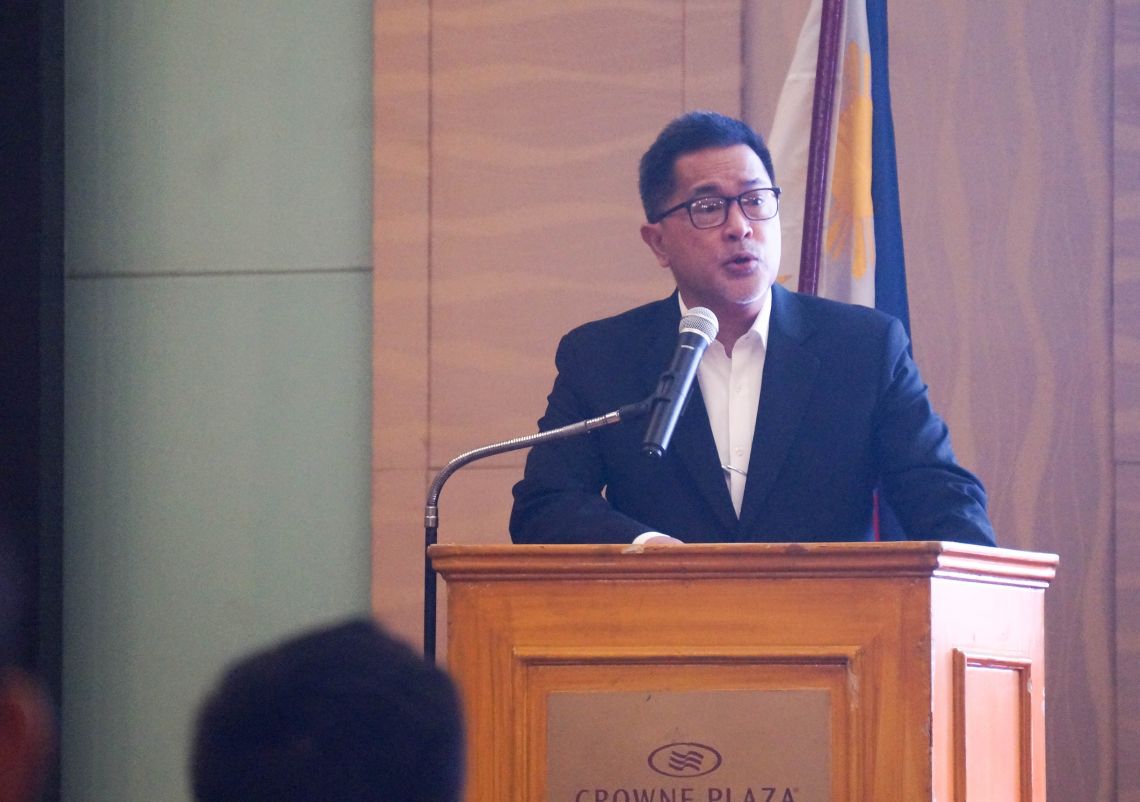
Government agencies, including the Department of Agriculture, signed repeal orders to revoke outdated and redundant policies to cut red tape in government.
Thirteen government agencies scrapped Dec. 12 redundant rules in a bid to urge the private sector to venture into business by speeding up transactions.
They deleted 708 rules permanently from their websites, repealed 46, amended 19, and consolidated 11, in a “Repeal Day” hosted by the National Competitiveness Council (NCC), an office attached to the Department of Trade and Industry.
“We’re inundated by a lot of rules and regulations in the private sector and the government,” said Guillermo Luz, co-chair of the NCC, which since 2016 has held three repeal days where participating agencies repeal redundant orders en masse.
The council to date has reviewed and acted on a total 5,851 government rules.
“We ask ourselves, over time, there has been a build-up of many layers of laws, and we ask ourselves are these all really necessary? Is it time to review, update, maybe eliminate and take out the irrelevant ones,” Luz said during the third Repeal Day in Quezon City.

NCC Co-Chair Guillermo Luz presents the breakdown of policies to be repealed, amended, delisted, consolidated and retained during the Third Repeal Day on Dec. 12, Quezon City
Eliminating red tape will make doing business much easier and help the country become more competitive, Luz said.
In 2017, the Philippines slipped 14 notches from 99th to 113th place among 190 countries in the World Bank’s 2018 rankings on ease of doing business.
Transportation Undersecretary Gary De Guzman, himself from the business sector, said during the Repeal Day that the Philippines still has a long way to go in improving its business climate.
“A would-be Filipino software entrepreneur would take weeks or even months before she can start her business venture,” he said.
“But if she were in Canada, it would only take two steps to register business, taking up only one and a half days for the entire process. Here in the Philippines, any entrepreneur may need to accomplish 16 procedures for an average of 28 days,” he added.
The Department of Transportation this year harmonized seven issuances from 1996 to 2015 to come up with the Omnibus Franchising Guidelines that seeks to streamline transport network routes in the country. (See DOTr moves to rid roads of old, dilapidated vehicles)
The department also implemented faster frontline services, reducing by 50 percent the processing time of all applications and transactions, said De Guzman.
These services cover driver’s licenses, seafarer’s books, and franchise verification for public utility vehicles, among others.
The other agencies who participated in the Third Repeal Day were:
- Land Transportation Franchising and Regulatory Board
- Cooperative Development Authority
- Office of Transportation Cooperatives
- Technical Education and Skills and Development Authority
- National Food Authority
- Department of Finance – Bureau of Local Government Finance
- Philippine Coast Guard
- Clark International Airport Corporation
- Securities and Exchanges Commission
- Department of Trade and Industry
- Sugar Regulatory Administration
- Department of Agriculture
At least 88 agencies have committed to participate in Project Repeal, Luz said.
“The volume of work and the complexity of work is getting higher,” Luz said, citing a total 15,000 to 20,000 rules the NCC has to review in a year.
Soon, the NCC is eyeing to expand the project to cover local government units, starting with highly urbanized cities.

